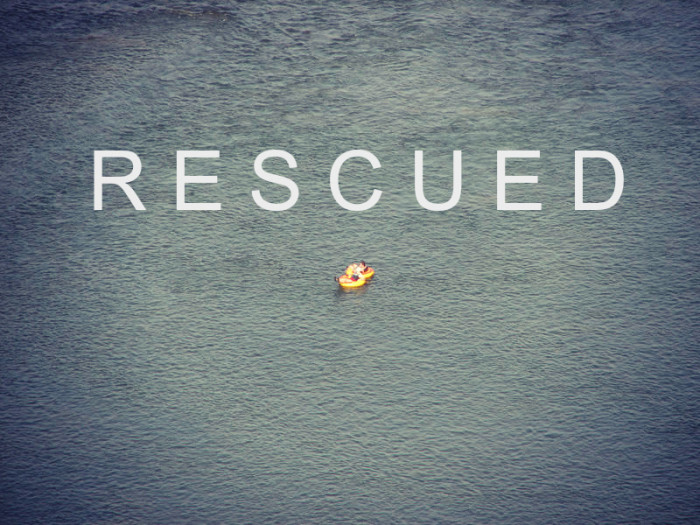Born to Stand Out
Yesterday, when I was going through some old things, I came across a little jar of buttons my mom had given me a long time ago. When I was a child, my grandmother had a big basket of buttons I used to love and this jar was a little sampling of them.
I hadn’t thought of that button basket in a very long time, but my mind went back to that basket yesterday. Its home was the shelf of a large hutch that sat in the back of the main room of my grandparents’ house. In front of the hutch was a little table. I remember sitting there, sorting and playing with those buttons on many occasions.
Many of the buttons were drab and nondescript, some were pretty colors but plain and round, and then there were the special ones– heart or flower-shaped and brightly-colored. These were my very favorite buttons. They were the ones that I would search for every single time.
As my mind wandered in the past, I suddenly realized that the world is really just like that button basket.
Most unbelievers, like those drab buttons that made up most of the basket, are living life and leaving no mark on eternity. They are self-absorbed and focused on pleasing themselves. And then there are the pretty-colored, plain ones–these represent the unbelievers who are doing many good things for the world before they leave it. But it is we Christians who should be the heart and flower-shaped buttons. We should stand out among the world by our love, by our holiness, by our godly choices, and by our actions in an incomparable manner, because we have the Holy Spirit living within us.
Only most of us don’t really want to stand out. We find it easier and even more pleasant to just fit in.
Oh, most of us Christians don’t mind looking like those pretty buttons that do some good in the world. That’s okay because it’s very acceptable. But we don’t want to change our shape, because that means we can be spotted and teased and mocked and persecuted. And we don’t really want that.
Of course, if this is how we feel, then we must ask ourselves: Do I really understand salvation?
Having a bold witness, choosing holiness, and standing up for Jesus Christ are born out of the love we feel for God because of the great grace and mercy we have been shown by Him. Our transformed life is born out of the humility, sinfulness, and utter unworthiness that we bring to the cross as we kneel there, begging for forgiveness and new life in Christ. This new life is born out of the understanding that we owe everything to Christ and are no longer our own master.
When we truly understand salvation, standing out isn’t a decision. For, of course, we will. For what else could we choose?
My savior died for me and so I will live for Him.
The brand of Christian so prevalent today isn’t doing anything of the sort. I don’t know if that means they aren’t saved at all or if they just don’t truly understand salvation (it is probably some of both) but what I do know is that it is confusing the world around us as to what being a Christian really means. It is giving the impression that Jesus is here to give me a better life on earth and some fire insurance for the hereafter. This unbiblical teaching has seeped its way into even the most conservative churches and it is hurting the Gospel.
So what to do?
We choose to live out biblical Christianity in our own little world. We choose to be brave and courageous as others falter and try to hide. We live a holy life, making even the smallest choice with a mind to please God. We speak the truths of scripture but always with love, kindness, and humility– even when we passionately disagree with someone. And we exude the joy and peace of our God in the midst of these dark, troublesome days. In living out biblical Christianity right where God has placed us, we will stand out like one of those brightly-colored and beautifully-shaped buttons. It matters not that we are standing out alone, for this is what we are called to do.
It reminds me of a saying I once heard in a secular movie–
Why are you trying so hard to fit in, when you were born {or re-born} to stand out?
I leave you with these words from I Peter 1:13-25. I hope these words will instill you with the desire to please our heavenly Father and to do so with courage, no matter what other Christians are doing around us–
Therefore gird up the loins of your mind, be sober, and rest your hope fully upon the grace that is to be brought to you at the revelation of Jesus Christ; 14 as obedient children, not conforming yourselves to the former lusts, as in your ignorance; 15 but as He who called you is holy, you also be holy in all your conduct, 16 because it is written, “Be holy, for I am holy.”[c]
17 And if you call on the Father, who without partiality judges according to each one’s work, conduct yourselves throughout the time of your stay here in fear; 18 knowing that you were not redeemed with corruptible things, like silver or gold, from your aimless conduct received by tradition from your fathers, 19 but with the precious blood of Christ, as of a lamb without blemish and without spot. 20 He indeed was foreordained before the foundation of the world, but was manifest in these last times for you 21 who through Him believe in God, who raised Him from the dead and gave Him glory, so that your faith and hope are in God.
22 Since you have purified your souls in obeying the truth through the Spirit[d] in sincere love of the brethren, love one another fervently with a pure heart, 23 having been born again, not of corruptible seed but incorruptible, through the word of God which lives and abides forever,[e] 24 because
“All flesh is as grass,
And all the glory of man[f] as the flower of the grass.
The grass withers,
And its flower falls away,
25 But the word of the Lord endures forever.”[g]
Now this is the word which by the gospel was preached to you.










